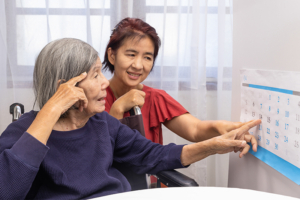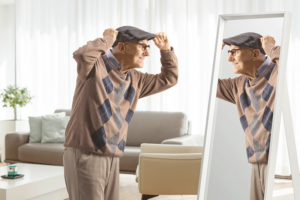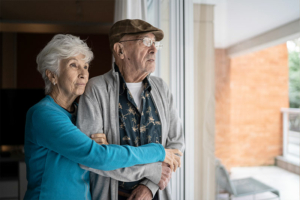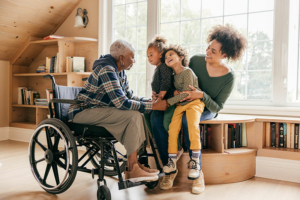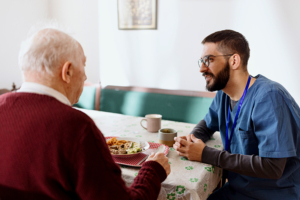Rethinking the Dementia Diagnosis Conversation

Learn how doctors are changing the landscape of discussions surrounding a dementia diagnosis.
A dementia diagnosis is never easy. It is the start of a difficult rollercoaster of emotions, all of which are heightened if the diagnosis is given starkly, without compassion or empathy. There are steps doctors can (and should) take when delivering a dementia diagnosis to ease the initial impact, empowering and equipping the individual and family with support and knowledge.
Below are a few of the ways physicians are striving to improve how they talk about dementia, and why it matters.
- Empathy First: Instead of jumping directly to medical jargon and statistics, doctors are now starting conversations with empathy and understanding. They recognize the emotional impact of a dementia diagnosis and strive to create a secure space for individuals and their family members to express their concerns and fears. In addition to this empathetic approach, physicians are also supporting open dialogue about the practical aspects of managing dementia, like daily routines and available support services.
- Education as Empowerment: Doctors are shifting towards an educational approach, arming patients and families with knowledge about dementia. By explaining the disorder in accessible language and offering resources for further learning, they empower individuals to better navigate the journey ahead. There’s also an emphasis on the need for proactive measures, such as lifestyle adjustments and early intervention strategies, to improve wellbeing and delay the progression of the disease.
- Person-Centered Caregiving: Acknowledging that every individual’s experience with dementia is different, doctors are shifting towards a person-centered approach to care. Ideally, they are engaging patients in discussions about their preferences, values, and goals, ensuring that care plans are tailored to the person’s needs and wishes. This customized approach extends beyond medical treatment to cover holistic support, including emotional wellbeing and social connectedness, fostering a feeling of dignity and autonomy.
- Supportive Networks: Doctors are increasingly connecting patients and families with supportive networks and resources within the community. Whether it’s caregiver support groups, dementia-friendly activities, or specialized services, these networks provide important emotional and practical support throughout the dementia journey. Doctors should also be advocating for the involvement of family caregivers in care planning and decision-making, recognizing their invaluable role in providing continuity of care and enhancing the person’s quality of life.
- Ongoing Communication: The conversation does not end with the initial diagnosis. Doctors should be dedicated to ongoing communication with patients and families, providing updates on the advancement of the disease, discussing treatment plans, and offering support each step of the way. This ongoing dialogue fosters trust and collaboration, empowering individuals and their families to make educated decisions and adapt to the evolving challenges of dementia caregiving.
If you suspect a loved one may be in the early stages of dementia, or if they have already been diagnosed, it’s essential to find a doctor that follows best practices such as these. It’s just as important to partner with a home care provider with specialized expertise in the unique needs of caring for someone with dementia.
At Responsive Home Care, our dementia care team is fully trained, highly skilled, and well known as the experts in Fort Lauderdale, Hollywood, Lighthouse Point, and the surrounding areas. Our innovative approach to care promotes independence, respect, and dignity. Contact us at 954-486-6440 to learn more.



